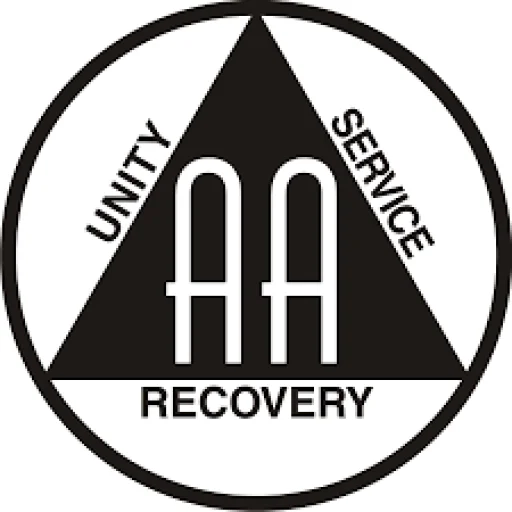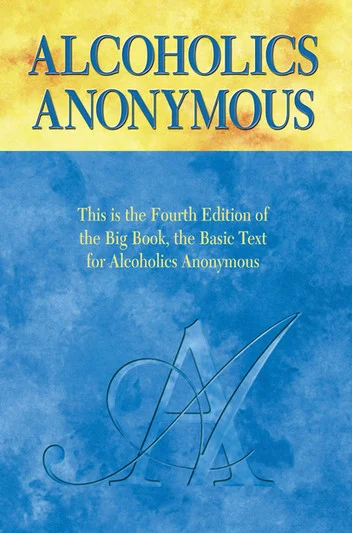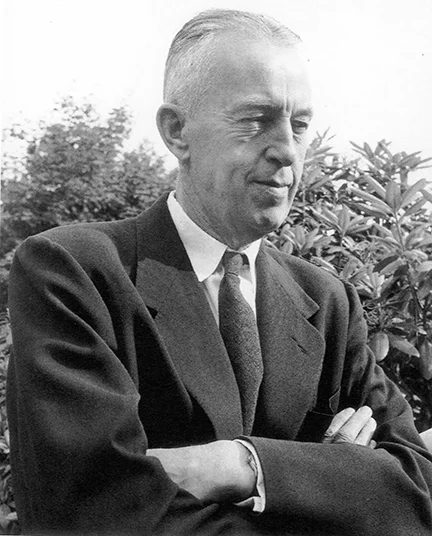
The Twelve Steps, central to Alcoholics Anonymous (AA), are introduced in the chapter “How It Works” from the book Alcoholics Anonymous. These steps provide a structured path for recovering from alcoholism, focusing on acknowledging one’s powerlessness over alcohol, placing faith in a higher power, self-examination, admitting wrongdoings, being willing to correct flaws, and committing to making amends.
The books “Twelve Steps” and “Twelve Traditions,” often called “Twelve and Twelve,” explore the Twelve Steps in more depth and introduce the Twelve Traditions. Each chapter provides a detailed explanation of either a Step or a Tradition, offering practical guidance for personal recovery and effective group dynamics. Together, these 24 principles have significantly influenced AA’s recovery model.
The Twelve Steps have been adapted by over 200 support groups worldwide, helping people overcome various addictions and compulsive behaviors. Groups like Narcotics Anonymous, Cocaine Anonymous, Crystal Meth Anonymous, and Marijuana Anonymous are built on this model. The Steps also support recovery in areas like gambling, eating disorders, and codependency through groups like Gamblers Anonymous and Co-Dependents Anonymous.
Key Takeaways
- AA is a global fellowship that supports people in their journey to overcome alcohol addiction.
- The organisation uses a 12-step programme to help members achieve and maintain sobriety.
- AA meetings provide a supportive environment for individuals to share experiences and find strength in recovery.
History and Foundations
Alcoholics Anonymous began as a small movement in the 1930s and grew into a worldwide organisation. Its founders developed a programme that has helped millions recover from alcoholism.
Origins of AA
Alcoholics Anonymous (AA) started in 1935 when Bill Wilson and Dr. Bob Smith met in Akron, Ohio. Both were struggling alcoholics who found that helping each other stay sober was key to their recovery. They drew inspiration from the Oxford Group, a Christian movement popular at the time.
Wilson and Smith developed AA’s core principles, including the famous Twelve Steps. These steps outlined a spiritual programme of recovery from alcoholism. The steps emphasised admitting powerlessness over alcohol, seeking help from a higher power, and making amends for past wrongs.
In 1939, AA published its basic text, Alcoholics Anonymous. This book, often called the ‘Big Book,’ explained AA’s philosophy and methods and became the foundation for the growing movement.
Growth and Development
AA grew rapidly after its founding. By 1950, there were 100,000 recovered alcoholics in the programme. The organisation spread internationally, with groups forming in many countries.
AA’s structure evolved to support its growth. In 1950, the first General Service Conference was held, which helped establish AA’s service structure and traditions.
Alcoholics Anonymous World Services (AAWS) was formed to manage AA’s publishing and service operations. AAWS protects the organisation’s identity by holding registered trademarks for AA’s name and logo.
Today, AA has over 2 million members worldwide. The organisation remains true to its original purpose: helping alcoholics achieve and maintain sobriety through mutual support and a spiritual programme of recovery.

Core Principles and Practices
Alcoholics Anonymous (AA) is built on a set of guiding principles and practices that help members achieve and maintain sobriety. These core elements form the foundation of AA’s approach to recovery from alcohol addiction.
Twelve Steps
The Twelve Steps are a cornerstone of AA’s recovery programme. They provide a structured path for members to follow as they work towards sobriety. The steps begin with admitting powerlessness over alcohol and end with helping others in recovery.
Key steps include:
- Admitting powerlessness over alcohol
- Believing in a higher power
- Making a moral inventory
- Making amends
Members work through these steps at their own pace, often with the guidance of a sponsor. The steps aim to promote personal growth and spiritual development.
Spiritual Awakening
AA emphasises the importance of a spiritual awakening in the recovery process. This doesn’t necessarily mean religious conversion but rather a profound change in thinking and behaviour.
The Big Book describes spiritual awakening as a new state of consciousness and being. It often involves:
- Developing a sense of purpose
- Finding inner peace
- Connecting with something greater than oneself
This awakening is crucial for maintaining long-term sobriety and leading a fulfilling life in recovery.
Admitting Powerlessness
The first step in AA’s programme is admitting powerlessness over alcohol. This concept is fundamental to AA’s approach to recovery.
Admitting powerlessness involves:
- Recognising that drinking has become unmanageable
- Accepting that willpower alone is not enough to stop
- Understanding that help is needed
This step can be challenging, but it’s seen as essential for breaking through denial and starting the recovery journey. It sets the stage for the remaining steps and opens the door to seeking support from others in the AA community.
The 12 Steps are as follows:
Step 1: “We admitted that we were powerless over alcohol, that our lives had become unmanageable.”
Step 2: “We came to believe that a Power greater than ourselves could restore us to sanity.”
Step 3: “We made a decision to turn our will and our lives over to the care of God as we understood Him.”
Step 4: “We made a searching and fearless moral inventory of ourselves.”
Step 5: “We admitted to God to ourselves and to another human being the exact nature of our wrongs.”
Step 6: “We were entirely ready to have God remove all these defects of character.”
Step 7: “We humbly asked Him to remove our shortcomings.”
Step 8: “We made a list of all persons we had harmed and became willing to make amends to them all.”
Step 9: “We made direct amends to such people wherever possible, except when to do so would injure them or others.”
Step 10: “We continued to take personal inventory and when we were wrong promptly admitted it.”
Step 11: “We sought through prayer and meditation to improve our conscious contact with God as we understood Him, praying only for knowledge of His will for us and the power to carry that out.”
Step 12: “Having had a spiritual awakening as the result of these steps, we tried to carry this message to alcoholics and to practice these principles in all our affairs.”
How The 12 Steps Work
- Step 1 – Powerlessness: Admitting having an alcohol problem is central to this step. A thorough step 1 shatters denial and harnesses acceptance of one’s disease.
- Step 2 – Faith: Faith in a power greater than oneself is paramount when working the steps. A higher power takes away the debilitating control factor that is characteristic of Alcoholism; this belief cultivates hope and that recovery is possible.
- Step 3 – Surrender: Surrendering is important when exercising faith. The direction and trust in a higher power help recovering alcoholics to re-direct their lives in an upward trajectory of recovery.
- Step 4 – Reflection: This step incorporates deep introspection by reflecting on past and present situations that evoke resentment. It is liberating to understand where these feelings came from and to become aware of incongruencies between thoughts, actions, and words. Taking radical responsibility for one’s actions is crucial when working on this step.
- Step 5 – Honesty: Integrity and honesty are paramount when working on the steps. Truthfulness is key when practising vulnerability; honesty restores integrity.
- Step 6 – Self-Acceptance: Understanding why one behaves and thinks the way one does is crucial to overcoming addiction. Acceptance is the only way to overcome these aspects of oneself.
- Step 7 – Humility: Acceptance and letting go of these character defects cultivates humility.
- Step 8 – Amends: In this step, you list the people who were harmed by your Alcoholism. Taking responsibility for your actions and admitting wrongdoings shows willingness and sincerity.
- Step 9 – Forgiveness: Holding onto resentments can be detrimental to recovery. It takes courage to forgive and to learn from past mistakes.
- Step 10 – Self-Assessment: Self-reflection must be continuously practised when working on the program. Honesty with oneself and others is essential when self-reflecting.
- Step 11—Higher Purpose: Communication with the power of your understanding is crucial. This can be done through mediation, prayer, and any other related practice of connecting with your higher power.
- Step 12 – Service: Through the completion of all Twelve Steps, it is imperative to carry the message to other addicts; this can be done by becoming a sponsor and taking another addict through the Twelve Steps.
Membership and Meetings
Alcoholics Anonymous (AA) welcomes anyone seeking help with their drinking. The organisation offers various meeting types and formats to support recovery.
Joining AA
AA has no formal membership process. Anyone who wants to stop drinking can join. No fees or dues are required; the only criterion is a desire to quit alcohol.
AA is open to people of all backgrounds, ages, and education levels. It’s a diverse community united by a common goal.
New members often start by attending open meetings. These allow anyone interested in AA to observe and learn about the programme.

Types of Meetings
AA offers several meeting formats to suit different needs:
- Speaker Meetings: Members share their personal stories of recovery
- Discussion Meetings: Participants talk about AA-related topics
- Step Meetings: Focus on AA’s 12-step recovery programme
- Newcomer Meetings: Designed for those new to AA
- Big Book Meetings: This meeting starts by reading a passage from the AA Big Book, which contains instructions on how to best follow the entire 12-step program for a successful recovery from alcoholism.
- Tradition Meetings: This involves going through one of the 12 traditions used by those in the program.
- Single-Step Meetings: This meeting focuses on one single principle of the 12 steps each week.
- 45-60-90 Meetings: These 12-step program meetings are an option for those running tight schedules at work or home.
- Gender-Specific Meeting: This 12-step meeting gives recovering addicts the opportunity to interact with people from the same gender, often making things a little bit more comfortable for those who are shy or withdrawn.
The most common type of meeting is speaker meetings, where members share their experiences. These meetings provide inspiration and practical advice for staying sober.
Closed meetings are for AA members only, while open meetings welcome anyone interested in learning about AA.
Online Meeting Dynamics
Online AA meetings have become increasingly popular. They offer convenience and accessibility, especially for those unable to attend in-person gatherings.
Virtual meetings follow similar formats to face-to-face ones. Participants can join via video conferencing platforms or phone.
Online meetings often use chat features to share and ask questions. Some groups have adapted traditions like the Serenity Prayer to suit the digital format.
While online meetings lack a physical presence, they maintain AA’s core principles of support and shared experience.
Organisational Structure
Alcoholics Anonymous has a unique structure that puts groups at the top and trustees at the bottom. This inverted pyramid ensures the organisation stays focused on helping alcoholics recover.
General Service Office
The General Service Office (GSO) is key to AA’s structure. It is a central hub for communication and support, helping local groups find meetings and maintaining contact with AA worldwide.
AA is a self-supporting organization that does not accept outside donations. This keeps AA independent and focused on its primary purpose.
The GSO coordinates services at national and international levels. It publishes AA literature and handles public information. The office also organises conferences and supports AA’s service committees.
Local groups connect to the wider AA structure through intergroups, districts, and areas. This network ensures that AA members have a voice in the organisation’s decisions.
Community and Support Networks
Alcoholics Anonymous fosters a strong sense of fellowship through its worldwide network. Members find strength and encouragement in shared experiences and mutual support.
Local and International Groups
AA meetings take place in many locations worldwide. In South Africa, groups like Sea Point Sunrise in Cape Town offer regular gatherings, and the Western Cape region hosts numerous meetings for those seeking help.
AA extends beyond borders. Zimbabwe Eastlea holds meetings for those in need. Gauteng province also provides multiple options for AA attendees.
Open meetings welcome anyone interested in AA’s recovery programme. This allows family and friends to learn more about alcoholism and support their loved ones.

Fellowship
Fellowship is an important aspect of the AA programme. Individuals who attend meetings and have sponsors and sponsees cultivate a sense of belonging. Having a sponsor and sponsee keeps members accountable and, most importantly, carries the message of recovery to other alcoholics.
Engaging in fellowship is important for recovery; members can relate to other alcoholics when sharing at meetings and engaging with each other. The supportive community of AA aids in combating feelings of isolation, which is commonly associated with alcoholism.
Frequently Asked Questions
Alcoholics Anonymous offers a structured programme for recovery from alcoholism. The organisation provides support through meetings, principles, and a community of peers who understand the challenges of addiction.
What principles underpin the Alcoholics Anonymous programme?
The core of Alcoholics Anonymous is the Twelve Steps. These steps guide members through self-reflection, admission of powerlessness over alcohol, and making amends.
How does someone begin their journey with Alcoholics Anonymous?
Anyone can start by attending an AA meeting. There are no fees or requirements to join. New members often begin by listening to others share their experiences. Many newcomers find a sponsor – an experienced member who offers guidance. Reading AA literature and working through the Twelve Steps are common early activities.
What types of support do Alcoholics Anonymous meetings offer?
AA meetings provide a safe space for members to share their struggles and successes. Some meetings focus on studying AA literature or discussing specific topics.
Can family members of alcoholics attend Alcoholics Anonymous meetings?
Most AA meetings are for alcoholics only. However, some groups hold “open” meetings where anyone can attend, including family members.
How does Alcoholics Anonymous approach anonymity?
Anonymity is a crucial principle of AA. Members are asked not to reveal the identities of other members outside the group.
What are the expected outcomes of long-term involvement with Alcoholics Anonymous?
Many members report long-term sobriety through AA. The programme aims to help people live fulfilling lives without alcohol.
Please call us at:
UK: 0800 955 3457
SA: 082 747 3422.